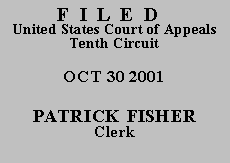

| UNITED STATES OF AMERICA, |
|
| v. | |
| RANDOLPH BOWDEN SCOTT, |
Randolph Bowden Scott, a federal prisoner proceeding pro se, requests a certificate of appealability ("COA") to appeal the denial of his 28 U.S.C. § 2255 habeas petition. Mr. Scott pleaded guilty to being a felon in possession of a firearm, a status offense criminalized by 18 U.S.C. § 922(g)(1). The district court sentenced Mr. Scott to fifteen years of imprisonment. Mr. Scott's conviction became final on February 24, 1992.
To qualify for a COA, a defendant must make a "substantial showing of the denial of a constitutional right." 28 U.S.C. § 2253(c)(2). Mr. Scott may make this showing by demonstrating that the issues raised are debatable among jurists, that a court could resolve the issues differently, or that the questions raised deserve further proceedings. See Slack v. McDaniel, 529 U.S. 473, 483-84 (2000). Mr. Scott has made no such showing, and his request for a COA is therefore denied.
DISCUSSION
We review de novo the district court's interpretation of 28 U.S.C. § 2244(d). See United States v. Fillman, 162 F.3d 1055, 1056 (10th Cir. 1998). Under § 2244(d)(1), a one-year period of limitation exists for filing habeas corpus petitions. See Hoggro v. Boone, 150 F.3d 1223, 1225 (10th Cir. 1998). For prisoners like Mr. Scott, whose conviction became final before April 24, 1996, the one-year statute of limitations begins on April 24, 1996. See id. at 1225-26.
The district court first determined that Mr. Scott's petition, filed December 4, 2000, was untimely. The district court correctly determined that Mr. Scott's petition was due April 23, 1997, absent tolling of the limitation period. Equitable tolling is appropriate only in exceptional circumstances, and an inmate should diligently pursue his claims in order to avail himself of tolling. See Miller v. Marr, 141 F.3d 976, 978 (10th Cir. 1998). Because Mr. Scott had from February 24, 1992, until April 23, 1997 to file his petition and provides no explanation for his delay, we conclude that Mr. Scott has not been diligent in pursuing his claims. Mr. Scott also seeks equitable tolling based on his contention that he is actually innocent of the crime because the gun in question belonged to his father. Mr. Scott may raise this claim on collateral review "in the absence of showing of cause for the procedural fault," if he can demonstrate that "a constitutional violation has probably resulted in the conviction of one who is actually innocent." Murray v. Carrier, 477 U.S. 478, 496 (1986). To establish actual innocence, Mr. Scott must demonstrate that, "in light of all the evidence," "it is more likely than not that no reasonable juror would have convicted him." Schlup v. Delo, 513 U.S. 298, 327-328 (1995) (internal quotation marks omitted).
We agree with the district court that Mr Scott has failed even to raise colorable allegations of factual innocence as to the underlying grounds. Mr. Scott does not dispute that he possessed the firearm. See Rec. doc. 9 (plea bargain filed Dec. 30, 1991, at p. 7) ("I had in my possession a shotgun shipped in interstate commerce. . . ."). Mr. Scott's refutation of ownership of the firearm does not preclude the conviction for illegal possession of a firearm. See 18 U.S.C. § 922(g)(1); United States v. Hishaw, 235 F.3d 565, 571 (10th Cir. 2000).
Mr. Scott also seeks to avoid § 2244(d)(1)'s time bar by invoking the § 2244(d)(1)(C) exception for newly recognized constitutional rights by relying on the United States Supreme Court's recent rulings in Apprendi v. New Jersey, 530 U.S. 466 (2000), and Castillo v. United States, 530 U.S. 120 (2000). Apprendi requires that facts "[o]ther than the fact of a prior conviction," used to enhance the penalty for a crime beyond the statutory maximum, must be submitted to a jury and proved beyond a reasonable doubt. 530 U.S. at 490. Here, the only factor used to enhance Mr. Scott's sentence was his prior convictions. As such, we agree with the district court that Mr. Scott's Apprendi argument is unsupported.(1)
Mr. Scott's reliance on Castillo is also misplaced. In Castillo, the Court held, in part, that "use of a machine gun" constitutes an offense element because it has not traditionally been used as a sentencing factor. 530 U.S. at 126-27. As noted above, Mr. Scott's conviction was enhanced based solely upon his prior convictions. Mr. Scott cannot demonstrate that his arguments based on Apprendi or Castillo provide a basis for revisiting his conviction and sentence.
Accordingly, we DENY Mr. Scott's motion for a COA and DISMISS his appeal.
Entered for the Court,
Robert H. Henry
Circuit Judge
*.This order and judgment is not binding precedent, except under the doctrines of res judicata, collateral estoppel, and law of the case. The court generally disfavors the citation of orders and judgments; nevertheless, an order and judgment may be cited under the terms and conditions of 10th Cir. R. 36.3.
1. The district court dismissed Mr. Scott's petition as untimely without reaching a conclusion about whether Apprendi applies retroactively to collateral attacks. Because we too conclude that Apprendi is factually inapplicable to Mr. Scott's conviction and sentence, we similarly need not decide this issue.